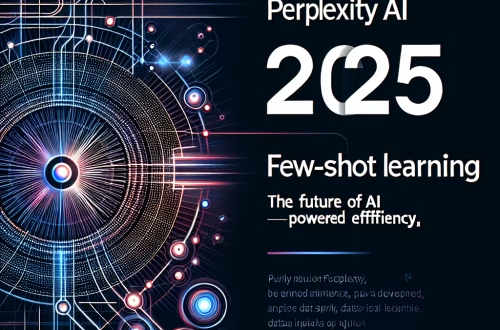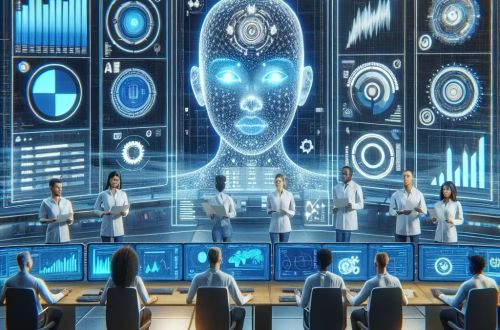AI in Crisis Response Google 2025
Summary:
Google’s advancements in AI for crisis response by 2025 are revolutionizing disaster management, humanitarian aid, and emergency coordination. Leveraging next-generation predictive models, real-time data analysis, and automated decision-making, Google AI helps governments and organizations respond faster and more effectively to natural disasters, pandemics, and humanitarian crises. This article explores how AI-driven crisis response works, its key benefits, and ethical concerns. For newcomers to AI, understanding these developments is critical as they shape global disaster preparedness and emergency policies.
What This Means for You:
- Faster Emergency Alerts: AI-driven systems will provide real-time disaster warnings, potentially saving lives by giving faster notifications through Google Search and Maps.
- Community Preparedness: AI can optimize evacuation routes and resource allocation. Stay informed about AI-powered crisis tools from Google to better protect your community.
- Ethical Awareness: AI decisions in emergencies may raise bias concerns. Advocate for transparent AI policies from agencies utilizing these models.
- Future Outlook or Warning: While AI improves crisis response, over-reliance without human oversight could lead to errors in unpredictable scenarios. Governments must balance automation with expert judgment.
Explained: AI in Crisis Response Google 2025
The Role of AI in Modern Crisis Management
By 2025, Google’s AI models will play a transformative role in crisis response, embedding machine learning in disaster prediction, real-time decision-making, and post-crisis recovery. These systems analyze satellite imagery, social media trends, weather data, and historical disaster patterns to predict floods, wildfires, and disease outbreaks before they escalate. For instance, Google’s Flood Forecasting Initiative, powered by AI, currently alerts millions in flood-prone regions like India and Bangladesh.
Key Strengths of Google’s AI in Crisis Response
Predictive Analytics: Google’s AI models process vast datasets to forecast disasters with increasing precision, allowing preemptive evacuations and resource deployment.
Automation of Emergency Logistics: AI optimizes supply chain routes for medical aid, food, and rescue personnel during crises.
Real-Time Language Translation: Google’s AI breaks linguistic barriers by translating distress calls and emergency reports in real time, crucial for international disaster response.
Weaknesses and Limitations
Data Bias Risks: AI models trained on historical data may overlook marginalized communities with underrepresented crisis data.
Dependency on Connectivity: AI-driven responses rely on internet access, which may fail in remote disasters.
Ethical and Privacy Concerns: Mass data collection for AI predictions raises issues about surveillance and consent.
Best Use Cases for 2025
Wildfire Containment: Analyzing satellite and drone footage for early wildfire detection.
Pandemic Tracking: AI monitors global health data to predict emerging outbreaks.
Post-Disaster Recovery: AI assesses infrastructure damage via images to prioritize rebuilding efforts.
People Also Ask About:
- How does Google AI detect disasters before they happen?
Google AI integrates satellite imagery, IoT sensors, and historical data into predictive models. For example, flood-prone zones are monitored using river level sensors and weather forecasts. - Is Google AI replacing human responders in emergencies?
No—AI assists responders by providing data-driven recommendations. Human judgment remains critical for complex crisis decisions. - What are the privacy risks of AI-driven crisis response?
AI analyzes vast personal data (location, social media posts), risking misuse if not properly regulated under privacy laws. - Can Google AI adapt to new types of crises like cyberattacks?
Yes, with reinforcement learning, Google’s AI adjusts to emerging threats, including cyber disruptions and bioterrorism.
Expert Opinion:
AI in crisis response offers immense potential but must be implemented responsibly. Models require rigorous testing against biases, especially when affecting vulnerable populations. Transparency in AI decision-making is crucial for public trust. Future developments must emphasize collaboration between tech firms, governments, and humanitarian agencies to ensure ethical deployment.
Extra Information:
- Google AI Research – Details on Google’s latest AI projects, including crisis response applications.
- UN Disaster Risk Reduction – Insights into global disaster policies complementing AI advancements.
Related Key Terms:
- AI disaster prediction models 2025
- Google AI humanitarian crisis response
- Real-time emergency alerts AI technology
- Ethics of AI in global disaster management
- Google Flood Forecasting AI updates
- AI-powered wildfire detection systems
- Machine learning for pandemic response 2025
Check out our AI Model Comparison Tool here: AI Model Comparison Tool
#Crisis #Response #Googles #Strategy #Smarter #Emergency #Solutions
*Featured image generated by Dall-E 3





